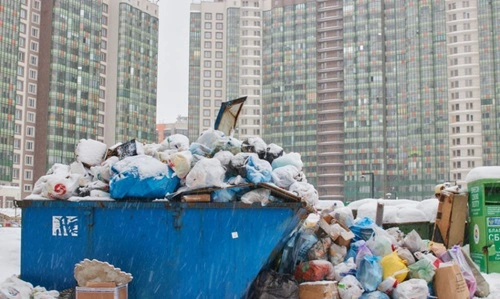Yes, it is illegal to dump trash in a store dumpster without permission in most parts of the United States. This practice, often referred to as “illegal dumping” or “theft of services,” violates property and environmental laws and can result in fines, criminal charges, and civil liability.
Understanding the Laws Around Dumpster Use
Dumpsters provided by stores or businesses are private property and are intended solely for the use of the business paying for the service. Dumping trash into these dumpsters without permission infringes on the property rights of the business and can disrupt waste management services.
1. Laws Governing Unauthorized Dumpster Use
Trespassing
Most store dumpsters are located on private property, making unauthorized access a form of trespassing.
- Example: Under California Penal Code § 602, entering another person’s property without permission is classified as trespassing and can lead to fines or misdemeanor charges.
Illegal Dumping
Dumping trash in a store dumpster without authorization may also be considered illegal dumping. This offense is taken seriously in both urban and rural areas to prevent unauthorized waste disposal.
- Example: Texas Health and Safety Code § 365.012 prohibits unauthorized waste disposal in dumpsters, with penalties ranging from fines to jail time.
Theft of Services
Using a store dumpster without permission may also be classified as theft of services. The store pays for waste disposal services, and unauthorized use imposes additional costs on the business.
- Example: Under New York Penal Code § 165.15, theft of services includes using another’s paid service, such as a dumpster, without consent.
2. Consequences of Illegal Dumpster Use
Violating laws related to unauthorized dumpster use can lead to:
- Fines:
- Local ordinances impose fines for illegal dumping, ranging from $50 to $5,000 depending on the severity and location of the offense.
- Criminal Charges:
- Repeat offenders or those dumping hazardous materials may face misdemeanor or felony charges, which can include jail time.
- Restitution:
- Offenders may be required to pay for any additional costs incurred by the business, such as extra waste removal or cleanup services.
- Civil Liability:
- A business can file a civil lawsuit to recover damages for unauthorized dumpster use, especially if the act leads to increased waste removal costs or environmental violations.
3. Exceptions and Contexts
In rare situations, using a store dumpster might not result in legal consequences:
- Explicit Permission: If a store grants permission to use its dumpster, it is not considered illegal.
- Public Dumpsters: Some municipalities provide public dumpsters for community use, which are legally accessible to residents.
However, even in these cases, dumping hazardous materials, excessive waste, or commercial debris can still be illegal.
Environmental and Public Health Concerns
Dumping trash in unauthorized locations, including store dumpsters, poses risks to public health and the environment:
1. Overflowing Waste: Unauthorized dumping can cause dumpsters to overflow, attracting pests and creating unsanitary conditions.
2. Hazardous Materials: Improper disposal of hazardous waste (e.g., chemicals, electronics, batteries) can lead to environmental contamination and violations of federal and state environmental laws.
3. Increased Costs for Businesses: Businesses often pay for waste disposal based on the volume of trash. Illegal use of their dumpsters leads to higher costs which may be passed on to consumers.
Recent Legal Updates (2023-2024)
1. Enhanced Penalties for Illegal Dumping
States such as Florida and Nevada have increased penalties for illegal dumping, including higher fines and mandatory community service for first-time offenders.
2. Surveillance and Enforcement
Cities like Los Angeles and New York City have implemented camera surveillance near high-traffic commercial dumpsters to deter unauthorized use.
3. Public Awareness Campaigns
Municipalities are educating residents about proper waste disposal options and the consequences of illegal dumping, encouraging the use of authorized facilities.
FAQs About Dumping Trash in a Store Dumpster
Q1. Is it illegal to throw away small items in a store dumpster?
Ans: Yes, even small amounts of trash can be considered illegal if you do not have permission to use the dumpster. It is still trespassing or theft of services.
Q2. What happens if I’m caught dumping trash in a store dumpster?
Ans: You may face fines, criminal charges, or be required to pay restitution for any costs incurred by the business.
Q3. Can businesses lock their dumpsters?
Ans: Yes, many businesses lock their dumpsters to prevent unauthorized use. Breaking or tampering with a lock can lead to additional charges, such as vandalism.
Q4. Where can I legally dispose of trash if I don’t have permission to use a dumpster?
Ans: Most cities provide designated waste disposal sites or recycling centers. Some also offer curbside trash collection for residents.
Q5. Is dumpster diving illegal?
Ans: The legality of dumpster diving varies by location. While it is not always illegal, it can be considered trespassing if the dumpster is on private property.

